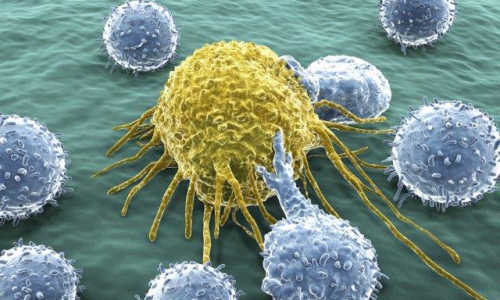Inserting a specific strain of bacteria into the microenvironment of aggressive ovarian cancer transforms the behavior of tumor cells from suppression to immunostimulation, researchers at Norris Cotton Cancer Center and the Geisel School of Medicine at Dartmouth have found. The findings, published in OncoImmunology, demonstrate a new approach in immunotherapy that can be applied in a variety of cancer types.
“By introducing an attenuated and safe form of the bacteria Listeria monocytogenes (Lm), in collaboration with Aduro Biotech Inc., we found that the attenuated bacteria is taken up by the immunosuppressive cells and transforms them from cells that protect the tumor into cells that attack the tumor,” said Steve Fiering, PhD, lead author of the study.
Tumors protect themselves from attack by the immune system by generating an immunosuppressive microenvironment. The study’s results found that Lm has a significant impact in increasing the amount of pro-inflammatory cytokines and chemokines, and recruiting immune effector cell subsets, that strongly support anti-tumor immunity. Modifying the immunosuppressive tumor microenvironment remains an approach that can be combined with other immune-based treatment to treat other cancers in addition to ovarian cancer.
“Modulation of the tumor microenvironment to make the immunosuppressive phagocytes into cells that support anti-tumor immune responses has roots in experiments done a hundred years ago by Dr. William Coley,” Fiering said. “Now that we can engineer microorganisms to make them safe to use and also can track the anti-tumor immune response in great detail, it has new potential for use in cancer treatment.”
The attenuated strain of Lm, developed by Aduro Biotech Inc., is already in clinical trials for the treatment of pancreatic cancer. “Our studies provide further understanding of the mechanisms involved and how this approach can be used in cancer treatment, and will support future clinical trials for treatment of ovarian cancer,” Fiering said.
Story Source:
The above story is based on materials provided by Dartmouth University.





